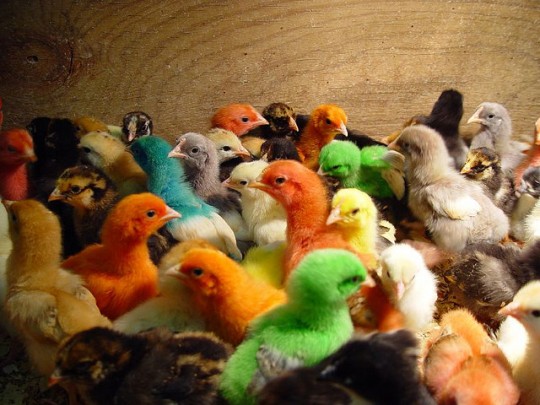Over at BuzzFeed, Ben Smith authored a blog post praising his news org for its commitment to diversity. It is, as these things often are, focused entirely on sex and race. By achieving a newsroom that has the proper balance of skin tone and gender, BuzzFeed will succeed in "Doing better work: Diversity makes us a better editorial operation. Underrepresented writers and journalists don’t exist to solely to speak to readers who look like them. Diversity helps editorial organizations avoid the bland and often false conventional wisdom held in a room full of people who come from similar places."
Notably absent from Smith's writing is any discussion of religious and ideological diversity. I'll allow the religiously inclined to handle that question (see: Ross Douthat and Michael Brendan Dougherty) and instead focus on the ideological/partisan portion of the diversity question. Let's be honest: a newsroom that votes 90 percent Democratic—one that hews to most liberal priorities on issues such as abortion or the environment or immigration—isn't terribly likely to buck the "often false conventional wisdom" on political issues.
Smith said on Twitter that he isn't comfortable asking his reporters about their politics. And, okay, maybe you don't need to do a Pew-style poll asking how they feel about abortion in specific trimesters (though it would be interesting to see what percentage of the newsroom agreed with the half of America that believes abortion is immoral and what percentage of the newsroom agreed with the 15 percent of America that believes abortion is perfectly moral). But I don't think it would be asking too much to do a quadrennial Slate-style piece asking staffers who they are voting for for president (and, optionally, why).*
Slate's openness in this regard is admirable, doubly so since it simply confirms every conservative's view of the media, writ large: that it is far to the left of the country as a whole. Barack Obama took 51 percent of the popular vote to Mitt Romney's 47 percent in the nation at large; at Slate, 86 percent of the staff members who revealed who they were voting for said they were voting for Obama, 6 percent said they were voting for Romney, and 8 percent were voting for "other." These results are not out of line with the rest of the media: just seven percent of reporters identify as Republican. In Washington, D.C., John Tierney reported that reporters went for Kerry over Bush by a 12 to 1 margin.
It's only when you take this kind of data into account that you can make sense of things like Peter Baker's bizarre New York Times article that ham-handedly wonders how Republicans (i.e., "the other") can possibly support keeping the president safe from assassination when they disagree so wholeheartedly with his positions. In an ideologically diverse newsroom, someone might have pointed out that his premise is utterly insane—and, in all likelihood, will only serve to pointlessly antagonize an already-suspicious news-consuming audience.
As it happens, I doubt that BuzzFeed is as ideologically homogenous as Slate or the New York Times or the larger world of news reporting. They seem to have done a good job of hiring the best person for the gig regardless of ideology. They've even been known to dip into the Free Beacon talent pool, stealing one of our best and brightest.** However, if the organization is going to take such pride in its diversity, perhaps it should focus on areas where the media is known to be lacking—and, more importantly, known to not be particularly concerned with fixing. I have no doubt that one's skin color and gender inform their writing. But I strongly question the premise that those factors are more relevant than, say, their church attendance or who they pull the lever for in their local polling place.
*I suggested as much to Ben on Twitter; he didn't reply.
**Still have mixed feelings about that one.
